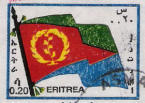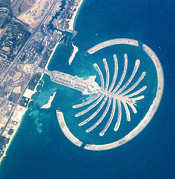 A federal district court in Washington, D.C., issued an opinion* last Friday awarding significant compensatory and punitive damages in a law suit against Syria brought by relatives of Jack Armstrong and Jack Hensley. Armstrong and Hensley were two U.S. civilian engineers who were kidnapped and beheaded in Iraq in 2004 by al-Tawhid wal-Jihad (“al-Qaeda in Iraqâ€). This incident gained worldwide notoriety after the terrorists released a gruesome video of the beheadings on the Internet.
A federal district court in Washington, D.C., issued an opinion* last Friday awarding significant compensatory and punitive damages in a law suit against Syria brought by relatives of Jack Armstrong and Jack Hensley. Armstrong and Hensley were two U.S. civilian engineers who were kidnapped and beheaded in Iraq in 2004 by al-Tawhid wal-Jihad (“al-Qaeda in Iraqâ€). This incident gained worldwide notoriety after the terrorists released a gruesome video of the beheadings on the Internet.
Normally the sovereign immunity doctrine prohibits claims in U.S. courts against foreign nations. The Foreign Sovereign Immunities Act (“FSIA”), 28 U.S.C. § 1602 et seq., however, permits such actions arising out of acts of terrorism where the foreign nation through official action has provided material support for extrajudicial killings, where the foreign nation was a designated state sponsor of terrorism at the time, and where the victim was a U.S. national. The court found that all these conditions were met with respect to Syria and the two beheadings at issue by al-Qaeda in Iraq. The court entered judgment against Syria in the amount of $412,909,587. This total award included separate awards for loss of income from the two decedents, pain and suffering by the two decedents, solatium to the immediate family members, and punitive damages. The award for punitive damages made up $300,000,000 of the total award.
The issue after such an award is how the plaintiffs might be able to collect these sums. Obviously the chance of this award being enforced in a Syrian court is roughly equal to the chance of winning the same amount in the lottery. Instead, these sums can only be recovered, as a practical matter, by judicial execution on Syrian assets in the United States. As readers of this blog will know, all Syrian assets in the United States are blocked. (And I’ll bet you were wondering what the export law connection would be for this case.)
Enter the Terrorism Risk Insurance Act of 2002, which permits execution against blocked assets. Section 201 of that act permits execution of blocked assets to satisfy judgments arising from acts of terrorism “to the extent of any compensatory damages for which such terrorist party has been adjudged liable.” And that’s the rub: only “compensatory” damages are included which means that punitive damages, which constitute the bulk of the award in the Armstrong and Hensley case, can’t be obtained from the blocked assets. Of course, the plaintiffs could apply for a license from OFAC or wait for the assets to be unblocked.
UPDATE: Although Executive Order 13399 states that the assets of entities in Syria engaged in the material support of terrorism are blocked, no specific order blocking the assets of the Syrian government has yet been issued, so the TRIA is not strictly applicable here until such time as those assets are specifically blocked. When writing this post I had momentarily confounded the comprehensive export ban with blocking of governmental assets. Thanks to Ex-OFAC in the comments for pointing this out.
*Francis Gates v. Syrian Arab Republic, 2008 WL 4367284 (D.D.C. 2008)(Westlaw subscription required). Slip opinion also available without Westlaw by clicking here.
 The Directorate of Defense Trade Controls (“DDTC”) imposed an arms embargo today on Eritrea. The embargo is the direct result of a State Department determination, made on May 14 under section 40A of the Arms Export Control Act, 22 U.S.C. 2781,that Eritrea was not cooperating fully with United States antiterrorism efforts. The statute makes an arms embargo mandatory after such a finding. According to the Federal Register notice announcing the arms embargo, the embargo becomes effective on October 1, 2008.
The Directorate of Defense Trade Controls (“DDTC”) imposed an arms embargo today on Eritrea. The embargo is the direct result of a State Department determination, made on May 14 under section 40A of the Arms Export Control Act, 22 U.S.C. 2781,that Eritrea was not cooperating fully with United States antiterrorism efforts. The statute makes an arms embargo mandatory after such a finding. According to the Federal Register notice announcing the arms embargo, the embargo becomes effective on October 1, 2008.
 Posted by
Posted by  Category:
Category: 

 A federal district court in Washington, D.C., issued an opinion
A federal district court in Washington, D.C., issued an opinion A court in Bangkok this week
A court in Bangkok this week  . . . the United Arab Emirates. With the publication today by the Bureau of Industry and Security (“BIS”) of the
. . . the United Arab Emirates. With the publication today by the Bureau of Industry and Security (“BIS”) of the  The defense trade cooperation treaties signed by the United States with the United Kingdom and Australia may have just become victims of election year politics. The Senate Foreign Relations Committee announced today, according to
The defense trade cooperation treaties signed by the United States with the United Kingdom and Australia may have just become victims of election year politics. The Senate Foreign Relations Committee announced today, according to 

